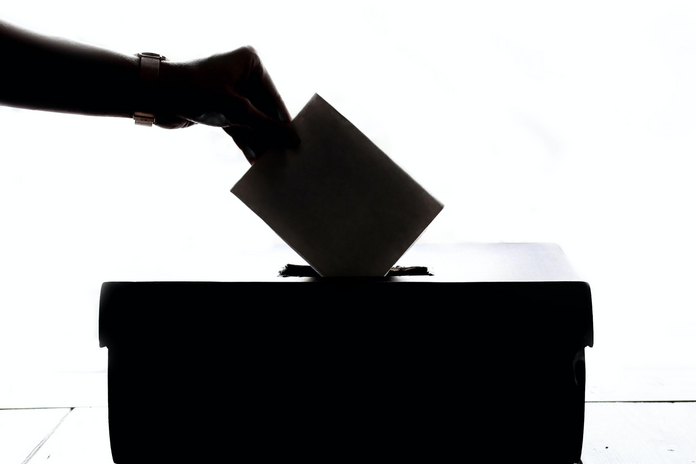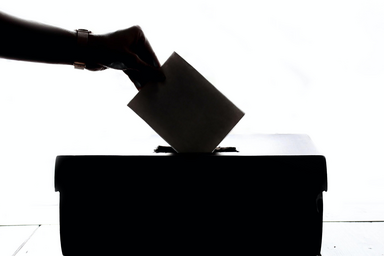Since the beginning of his presidency, Jair Bolsonaro has talked about the election. More precisely, about possible fraud in them. In March of 2020, the president said he had proof that he was elected on the first round of voting, back in 2018.
From there, no evidence has appeared, but the debate surrounding this issue has only increased. It was, for example, expanded by the claim exposed by Donald Trump that he had won over Joe Biden last year.
But let me explain from the beginning. Brazil is one of the countries that use an electronic voting machine for elections. They were implemented in 1996 to prevent fraud by not demanding human intervention in the process of counting and verification of the results. We walk into a cabin, come face to face with the machine, click on the numbers that indicate the candidate we want to choose, confirm and we are done. No paper. Since then, for 25 years, there have been no indications of cheating.
In 2019, deputy Bia Kicis, Bolsonaros’s ally, proposed an amendment to the constitution which aimed to establish that even with voting on the machine, there should be also “the expedition of physical, voter-verifiable ballots to be deposited in ballot boxes that cannot be tampered with for auditing purposes”.
Theoretically, the print gives more credibility to the entire process. However, it could lead to the breaking of the secrecy of the vote. Today, the electronic ballot is auditable. But Kicis’s project is not new. Others were already rejected in 2009 and 2015 by the supreme court, which said that the printing would violate the secrecy of the elections.
Some specialists defend that the ballot, today, already guarantees security, but the printed vote would give even more confidence. The fact is that the debate is wrapped in a mountain of fake news, and any discussion of this, now, would cause instability.
This seems to be exactly what the government wants. On July 8, the ministry of defense, general Braga Netto, sent a message to the president of the chamber of deputies, Arthur Lira: there will be no election in 2022 if Congress does not approve the printed ballots. Lira did not deny receiving it.
On July 29, the president called everybody to watch his usual live stream, which occurs every Thursday. Even the journalists that normally are mistreated by him. The reason? He would finally give proof of the allegations he gave back in 2020, that there was a risk of fraud in the elections. He gave none. He admitted. In two hours of transmission, Bolsonaro only succeeded in spreading more fake news and attacking ministers of the supreme court, including the president of the superior electoral court, Luís Roberto Barroso.
Because of this, Bolsonaro was included as investigated in the fake news inquiry of the supreme court, which looks into the dissemination of false information. The minister Alexandre de Moraes is the rapporteur of the investigation. In retribution, the president said he would act outside the constitution, stating: “Is the inquiry within the four lines of the Constitution? It isn’t. Then the antidote for it is not within the four lines of the Constitution either”.
On August 20, Bolsonaro delivered, through a staff member, a request for the impeachment of Alexandre de Moraes. Its processing depends on the president of the senate, Rodrigo Pacheco, who has already said that “this is not something we recommend”. It is the first time that a president requests the removal of a minister of the supreme court.
Meanwhile, the project of amendment to the constitution was to be voted on in the chamber. First in a special commission. The approval or rejection there decides whether or not the project goes to all the deputies to vote. The printed ballot was rejected by 23 to 11 in the commission, which would cause the case to be dismissed. But the president of the chamber, Arthur Lira, decided that the matter should be voted on by all. In this case, 308 of the 513 deputies should vote in favor of the change. However, there were only 229 approving the measure, against 218. It was over. Or so we thought.
On the same day scheduled for the voting, the navy confirmed that a series of military vehicles would pass by the congress on the way to a military training that happens every year. Nobody thought it was a coincidence, because it never occurred before. The action was seen as intimidation. Even though it is such a serious action, it flopped. The lack of supporters, the precarious equipment – one of the tanks was blowing smoke -, caused shame on the military and jokes on the internet.
None of this prevented Bolsonaro and his supporters from insisting on the subject. The defeat of the proposal might not be a defeat to Bolsonaro. All of what is being done is a policy of the government. Despite weakening the relationship with the other institutions, it seems to the supporters that the president is being persecuted. That moves his base even further and reinforces his speech.
We can only wait and see where all this will take. On September 7, the day we celebrate the independence of Brazil, the president called an act in his support, in Paulista Avenue, São Paulo. The demonstration will include – you will be surprised – the defense of printed vote, of the impeachment of the ministers of the supreme court, and threats of a coup d’état. And Bolsonaro will be there speaking.
—————————————————————–
The article above was edited by Gabriela Sartorato.
Liked this type of content? Check Her Campus Cásper Líbero home page for more!


